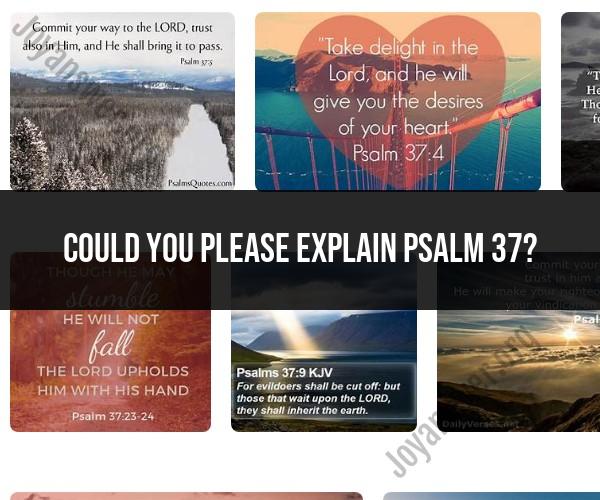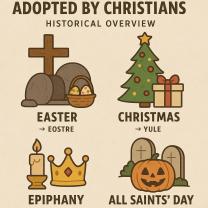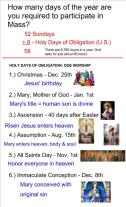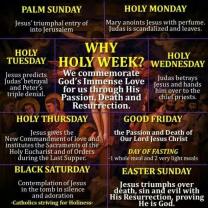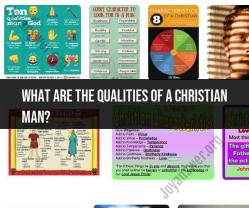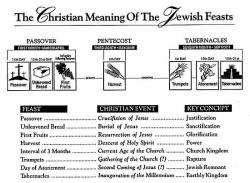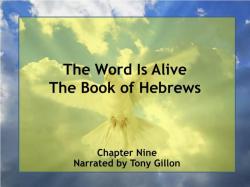Could You Please Explain Psalm 37?
Certainly, Psalm 37 is a well-known chapter in the Book of Psalms, and it offers a rich and profound message with practical wisdom and spiritual insights. Let's break down the key themes and messages found in Psalm 37:
1. Trust in the Lord (verses 3-5): The psalm begins by encouraging the reader to trust in the Lord and do good. It emphasizes that trusting in God and committing one's way to Him leads to righteousness and justice. This is a foundational message throughout the psalm.
2. Fret not over the wicked (verses 1-2, 7-10): The psalm addresses the common human concern of seeing the apparent prosperity of the wicked while the righteous may face trials. It advises against being envious or anxious about the success of evildoers, for their prosperity is temporary.
3. Delight in the Lord (verse 4): Verse 4 encourages readers to "delight themselves in the Lord." This means finding joy, contentment, and satisfaction in God's presence and His will. It suggests that focusing on God's goodness brings true fulfillment.
4. Commit your way to the Lord (verse 5): This verse advises committing one's plans and paths to the Lord. It implies seeking God's guidance and surrendering control over one's life to Him, trusting that He will direct one's steps.
5. Rest in the Lord (verse 7): Psalm 37 urges believers to "rest in the Lord and wait patiently for Him." This emphasizes the idea of finding peace, patience, and trust in God, even in the face of challenges and uncertainties.
6. The temporary nature of the wicked (verses 12-15): The psalm acknowledges that the wicked may prosper for a time but assures that their ultimate destiny is not favorable. It uses imagery to illustrate the fleeting nature of their success.
7. Inheritance and prosperity of the righteous (verses 9, 11, 18-19, 22): The psalm underscores the idea that the righteous will inherit the land and enjoy God's blessings. It conveys the message that God rewards those who follow His ways with security and provision.
8. The steps of a good person are ordered by the Lord (verse 23): This verse suggests that God guides and directs the paths of those who seek to live righteously. It emphasizes the divine guidance available to those who trust in Him.
9. The power of righteousness and justice (verses 27-29): The psalm encourages believers to live righteously and do justice, as these are qualities that please God and lead to His blessings. It highlights the importance of moral integrity.
10. Protection and preservation of the righteous (verses 16, 17, 24, 25): The psalm assures believers that God protects and preserves the righteous, even in times of trouble. It acknowledges that they may face trials and adversity, but God ultimately sustains them.
11. Salvation is from the Lord (verse 39): The psalm concludes by emphasizing that salvation comes from God alone. It underscores our dependence on Him for deliverance and redemption.
In summary, Psalm 37 provides valuable guidance on trust, contentment, patience, righteousness, justice, and the rewards of faith from a biblical perspective. It encourages believers to maintain faith in God's plans, to not be discouraged by the apparent success of evildoers, and to live in ways that honor and please God.
A Comprehensive Explanation of Psalm 37
Psalm 37 is a wisdom psalm that addresses the problem of evil, which is often expressed as a question: why do the wicked prosper and the good suffer? The psalmist begins by acknowledging that this can be a troubling question, but he then goes on to offer a number of insights and reassurances.
One of the key messages of Psalm 37 is that we should trust in God and do good, even when it seems like the wicked are getting ahead. The psalmist reminds us that God is just and that he will ultimately reward the righteous and punish the wicked. He also reminds us that the prosperity of the wicked is often fleeting, while the blessings of the righteous are everlasting.
Another important message of Psalm 37 is that we should not fret or envy the wicked. The psalmist encourages us to delight ourselves in the Lord and to commit our ways to him. When we trust God and focus on his goodness, we can find peace and joy even in difficult circumstances.
Psalm 37 can be divided into several sections, each of which deals with a different aspect of the problem of evil.
Verses 1-11: The psalmist begins by acknowledging the problem of evil and expressing his own confusion and distress. He then reminds himself that God is just and that he will ultimately vindicate the righteous.
Verses 12-29: The psalmist contrasts the wicked with the righteous. He describes the wicked as arrogant, boastful, and violent. He describes the righteous as humble, trusting in God, and doing good. He assures us that the wicked will ultimately be destroyed, while the righteous will inherit the land.
Verses 30-38: The psalmist provides examples of the righteous and the wicked. He shows us that the righteous are often persecuted and oppressed, while the wicked seem to prosper. However, he assures us that God is always with the righteous and that he will ultimately deliver them.
Verses 39-40: The psalmist concludes by restating his confidence in God's justice. He assures us that the righteous will be rewarded and the wicked will be punished.
Breaking Down the Verses and Themes of Psalm 37
Here is a more detailed breakdown of the verses and themes of Psalm 37:
Verses 1-3: The psalmist begins by admonishing us not to fret or be envious of the wicked. He reminds us that they will ultimately be destroyed, while the righteous will prosper.
Verse 4: The psalmist encourages us to delight ourselves in the Lord. When we do this, he will give us the desires of our heart.
Verses 5-6: The psalmist tells us to commit our way to the Lord and to trust in him. He assures us that he will make our righteousness shine forth like the light and our justice like the noonday sun.
Verses 7-9: The psalmist tells us to be still before the Lord and to wait patiently for him. He warns us not to fret about the prosperity of the wicked. He assures us that the wicked will be cut off and the humble will inherit the land.
Verses 10-11: The psalmist tells us that the wicked will soon be gone and that their place will not be found. However, the humble will dwell in the land and enjoy abundant peace.
Verses 12-15: The psalmist describes the wicked as plotting against the righteous and grinding their teeth at them. However, the Lord laughs at the wicked, knowing that their day of doom is coming.
Verses 16-18: The psalmist tells us that it is better to have a little that is righteous than to have great treasures that are wicked. The arms of the wicked will be broken, but the Lord upholds the righteous.
Verses 19-20: The psalmist assures us that the righteous will be delivered in the time of trouble and that they will be satisfied in the days of famine. The wicked, on the other hand, will perish and their name will be forgotten.
Verses 21-24: The psalmist tells us that the wicked borrow and do not repay, but the righteous are generous and give. Those who are blessed by God will inherit the land, but those who are cursed by God will be cut off.
Verses 25-29: The psalmist tells us that he has seen the wicked in great power, but they were soon gone. The righteous, on the other hand, will abide forever and their seed will be established.
Verses 30-31: The psalmist tells us that the mouth of the righteous utters wisdom and their tongue speaks justice. The law of their God is in their heart and their steps do not slip.
Verses 32-34: The psal
